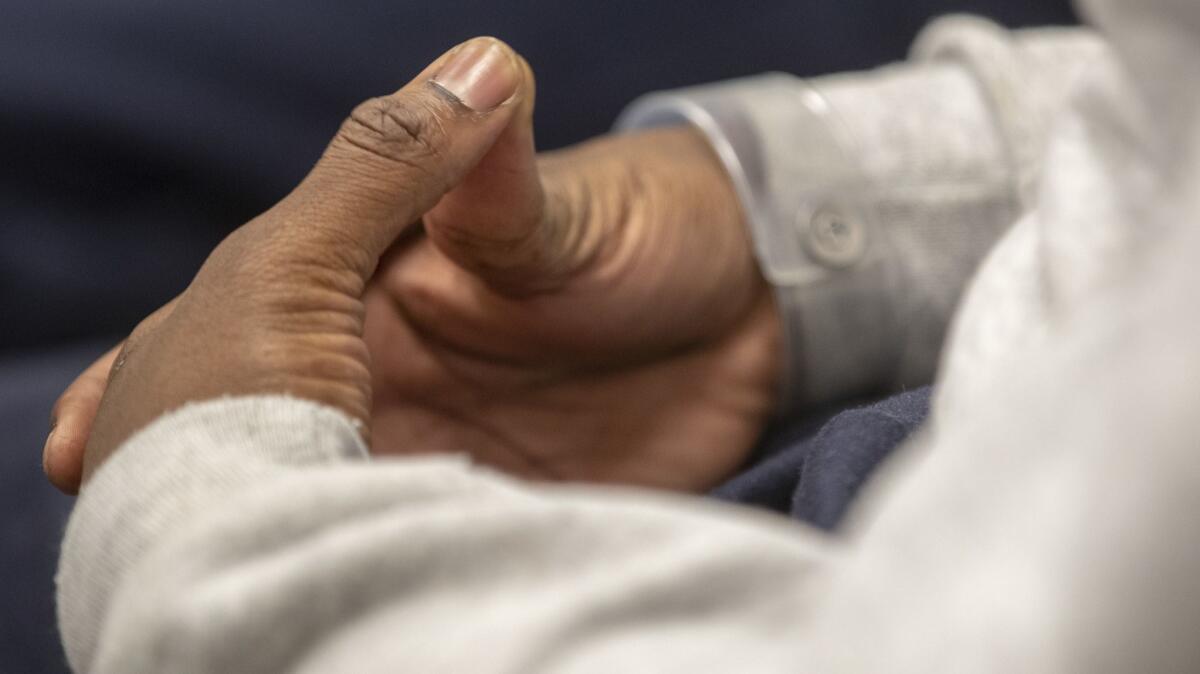Editorial: Why do Californians keep electing prosecutors who try to undermine our laws?

- Share via
A lot of time has passed since the 1990s, when politicians, pundits and even academics began whipping up public frenzy over a supposed generation of juvenile “super-predators,” bereft of normal human values, running in packs and preying on law-abiding citizens. Back then, California lawmakers passed a series of punitive bills that ensured young offenders were treated, if not quite like wild animals, at least like irredeemable adult career criminals.
A bill signed into law in 1994 allowed minors as young as 14 and 15 to be tried in adult court for the most serious crimes and to be penalized with adult sentences, including life in prison. Voters followed up in 2000 with Proposition 21, which allowed prosecutors on their own, without sign-off from juvenile court judges, to file criminal charges against many teenagers directly in adult criminal court. District attorneys drove much of the tough-on-juveniles movement, largely because of their penchant for measuring their success by the severity of the sentences they obtained in court.
It took a while, but the frenzy died down. There had indeed been a crime increase, but Californians saw that it had been exaggerated, that it had already begun falling before laws were toughened and that the hyper-punitive reaction had been reserved mostly for African American and Latino suspects.
Public safety depends on more than merely seeking the most punitive possible sentences.
Voters scrapped Proposition 21 two years ago by adopting Proposition 57 and returning the state to its previous, more just and more sober system in which judges, not prosecutors, decide whether teenagers should be tried as juveniles or as adults. Even most district attorneys acknowledged that they ought to give that discretion back to judges.
And last year, lawmakers passed, and the governor signed, SB 1391, which rolled back the 1994 law and once again set the low-end age limit for possible adult prosecution at 16, rather than 14.
It would seem that most Californians had collectively recovered their senses.
But not all of them. Elected district attorneys around the state still want to send some 14- and 15-year-olds to adult court on adult charges to face adult sentences — despite the fact that science tells us young teenagers’ brains are still developing and that they aren’t yet capable of adult-level judgment and moral reckoning. Furthermore, they are more likely than adults to change their ways when offered constructive rehabilitation programs.
Having lost their argument during the legislative process last year, prosecutors are challenging SB 1391 in court on the claim that it somehow violates the will of voters. They assert that because voters passed Proposition 57, that measure covers the gamut of juvenile charging laws and cannot be supplemented by legislation.
That makes little sense. Voters adopted “direct filing” in adult court by prosecutors and then threw it out with Proposition 57. Lawmakers lowered the age limit and then raised it again. The two issues — the one addressed by voters and the other by the Legislature — are completely different. A majority of the California trial courts that have been asked to consider prosecutors’ arguments to the contrary have rejected them.
But a handful of courts have upheld prosecutors, so the issue appears to be headed to the state Supreme Court.
In the meantime, though, in this era in which Californians have clearly expressed their will to return to a more level-headed set of criminal justice policies, it’s interesting to note that their elected prosecutors keep pushing the other way. Why is that? Why does the same electorate that rolls back excessively punitive laws at the ballot box and through their Assembly and state Senate representatives also elect district attorneys who work so hard to undermine those reforms?
Enter the Fray: First takes on the news of the minute »
It may be that voters have not, until recently, paid a lot of attention to their district attorneys and the role they play in the justice system.
District attorneys often say their job is to keep people safe, and they are correct — but public safety depends on more than merely seeking the most punitive possible sentences. One guiding principle adopted by a number of recently elected reform-oriented prosecutors is to “treat kids like kids” — even those accused of serious crimes, because the chances of their rehabilitation increase substantially if they are kept within the juvenile justice system.
District attorneys once won election to office in California by promising to treat young offenders like subhuman super-predators, to be locked away forever. In ballot measures and legislative elections, voters have signaled that they want something different. Maybe it’s time prosecutors start listening.
Follow the Opinion section on Twitter @latimesopinion and Facebook
More to Read
A cure for the common opinion
Get thought-provoking perspectives with our weekly newsletter.
You may occasionally receive promotional content from the Los Angeles Times.









